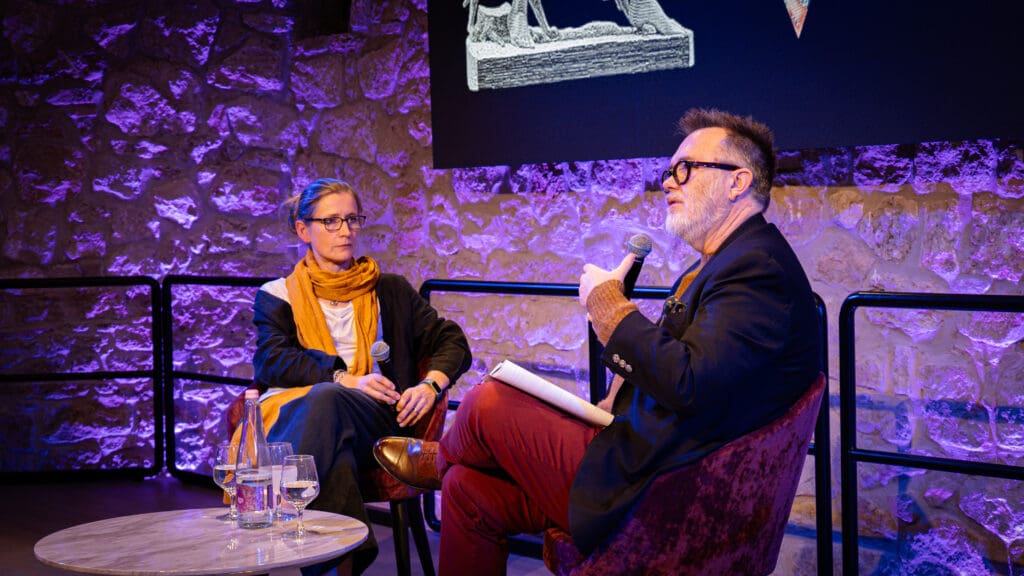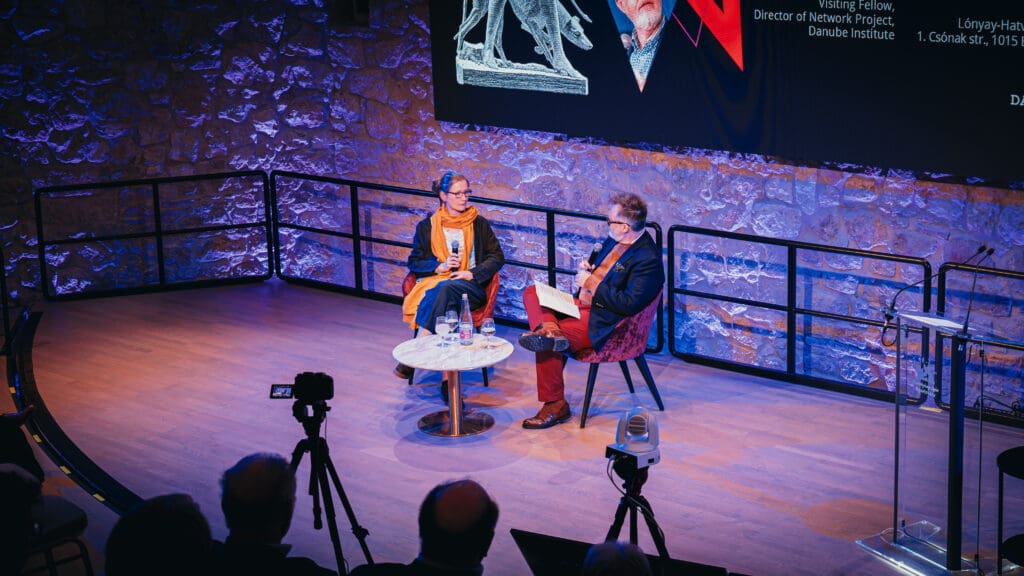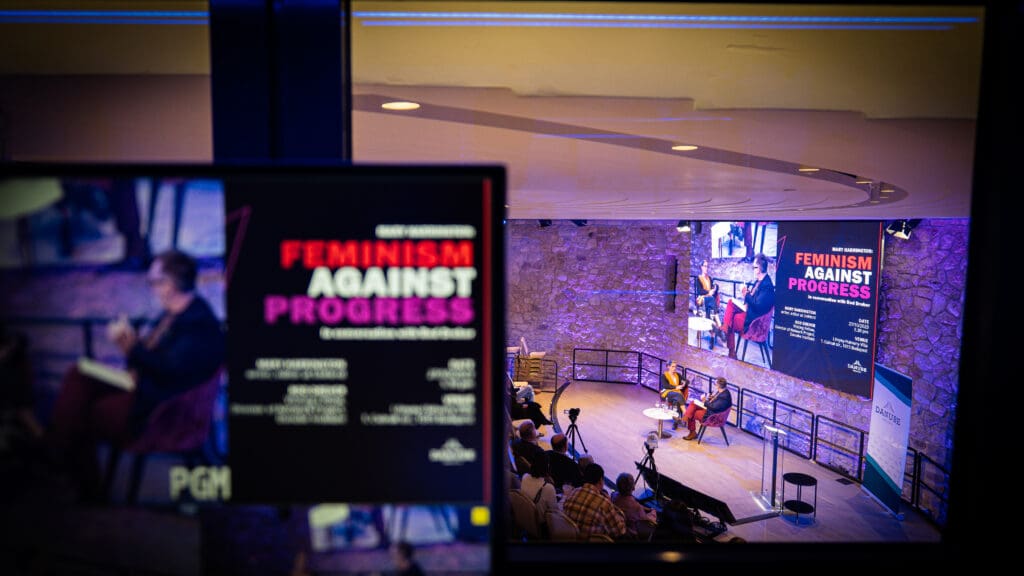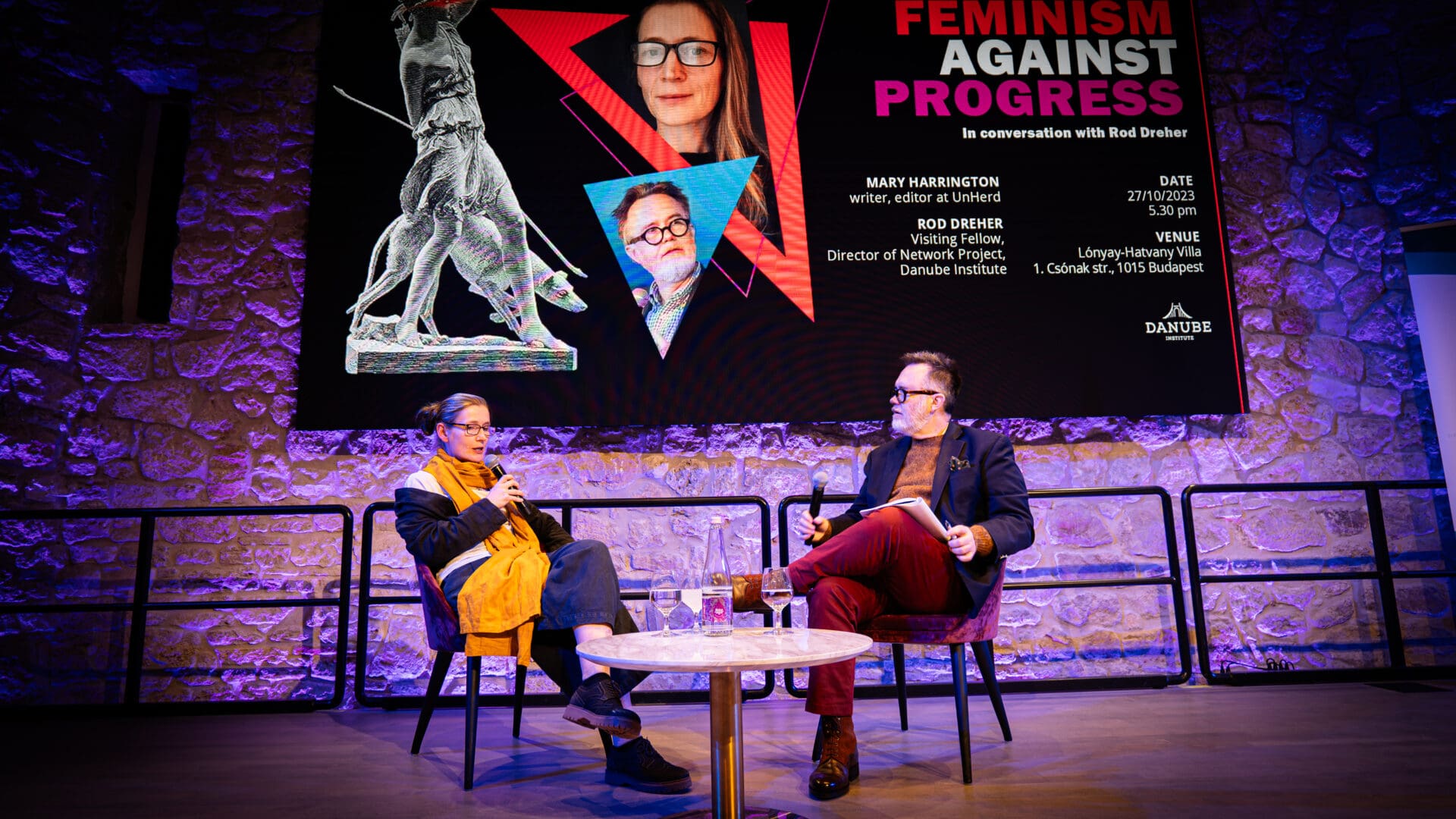British self-styled ‘reactionary feminist’ Mary Harrington recently joined a conversation with Rob Dreher, visiting fellow at the Danube Institute to explore the origins of feminism, the impact the Industrial Revolution had on women as well as the unintended consequences of contraception.
Mary Harrington, a writer and editor at UnHerd, and author of a recent book titled Feminism Against Progress, started the conversation by explaining why she questions the notion of progress. She said she challenges the teleological dogma that the modern world is headed forward to attain a certain goal, and that by progress, it perfects itself. She highlighted that progress in the realm of technology does not imply any improvement for instance in morals or virtues. Mary Harrington argued that optimists of progress only believe that progress had been made but have no means of proving it. She brought up the example of war— albeit she agreed that there are fewer wars now than there used to be in the past, she pointed out that due to the availability of nuclear bombs, the world is not less dangerous than it used to be when conventional wars were more common. In other words,
no progress had been made in terms making the world a safer place.

The conversation then moved on to how Mary Harrington came to the conclusions about feminism and progress that she advocates for in her book, Feminism Against Progress. She recalled that her worldview went through a deep transformation in the aftermath of the 2008 financial crisis. At that time, she was involved in a business that aimed to reform education. Partly due to the recession, her startup went bankrupt. In addition to the financial loss, she also lost friends and was forced to leave London and move to the countryside. The experience of loss, and soon after the birth of her child, forced Mary Harrington to reconsider her worldview, and her views on feminism, which also involved rethinking the meaning of progress.
In her monologue, Mary Harrington stressed that the experience of having a child is a revolutionary and transformative feeling for a person from a liberal society. A pregnant woman is more than just one person, one individual that our modern societies built upon the ideals of liberal individualism focus on. Pregnancy made her realise the interdependency of humans on each other, which is contrary to liberal individualism so focused on single individuals. The realization of human interdependency was contrary to core feminist beliefs as well—in modern feminism, self-ownership is key, especially as an arguments for abortion, as expressed in the ‘my body, my choice’ slogan. As Mary Harrington later pointed out, however, self-ownership also leads to endorsing and finding sex work and OnlyFans* ‘empowering’—ultimately, if women really do own their bodies, they can choose to sell or commercialize it, too.

Rather than be fulfilled with self-ownership, Mary Harrington emphasized, women should value interdependence, and the importance of communities and marriage in women’s lives. She argued that part of the solution to women’s problems in modern times is to get married. Being married is the best help women can get when they are pregnant and need to take care of an infant, not to mention that growing up in a two-parent household is better for children as well. She advises women to make sure to marry with a person who will stick around and provide help. Rather than seeing relationships as a ‘vector for self-fulfilment’, like a product that is supposed to make a consumer happy, Mary Harrington conceptualized marriage as a not only a romantic, but a very pragmatic choice.
The Origin of Feminism
Mary Harrrington argued that feminism appeared for historic reasons, and one of the most important historic events that impacted women was the Industrial Revolution. During the Middle Ages, work and family was part of the everyday life of both men and women. Women worked just as much as men did, but the two sexes worked on different jobs.
The sexual division of labour was like left and right hand working together,
Mary Harrington stressed: both sexes’ work was needed to sustain the household. In other words, work and family were not in conflict, but looking after the children was part of the work women did while weaving, for instance. With the Industrial Revolution, however, women’s work drained away—textile- making, and food production moved from the households to factories.
As the work women used to do at home was industrialized, they were left with the duty of childrearing. On the one hand, poor women were forced to outsource their childrearing to others and look for jobs to make ends meet; on the other hand, the women of the elite had no other activities left but taking care of their offspring. However, the life of privileged women was in constant danger, as their husbands could abandon them anytime leaving their wives with no money, nor the opportunity to enter the workforce. To battle women’s dependency on their husbands, feminists started to argue that women should be allowed to enter the labour market on the same conditions as men.

The first period of feminist thought was characterized by an ideational war between the feminism of care and the feminism of freedom.
While the feminists of freedom argued that women should enter the workforce on the same terms as men, the feminists of care pushed for protecting women’s standing and duties in the household. With legislative barriers removed after the world wars, and with the invention of contraception, differences between the sexes seemed to indeed disappear from the perspective of an average job. In a desk job, as the intelligence of men and women does not differ on average, sex differences started to be seen hollow, so the feminism of freedom seemed to prevail.

The use of contraception had a counterintuitive and therefore, unintended consequence, however, that feminism has not properly address to this day. The counterintuitive effect of contraception’s was that instead of decreasing unwanted pregnancies, it increased them. In the 1960s, in the belief that contraception protects women from unwanted pregnancies, sex started to be practised freely by a wide range of women, but due to the failures of contraception women did became pregnant against their desire, so then feminism pushed to legalize abortion to remove the unwanted ‘consequences’ of women’s choices. In other words, despite the myth about the sameness of men and women, the two sexes still fundamentally differ in the consequences of reproduction, so the best strategy for women is to live in monogamous, committed relationship with a husband.
*OnlyFans is an internet content subscription service based in London, used primarily by prostitutes who produce pornography.








